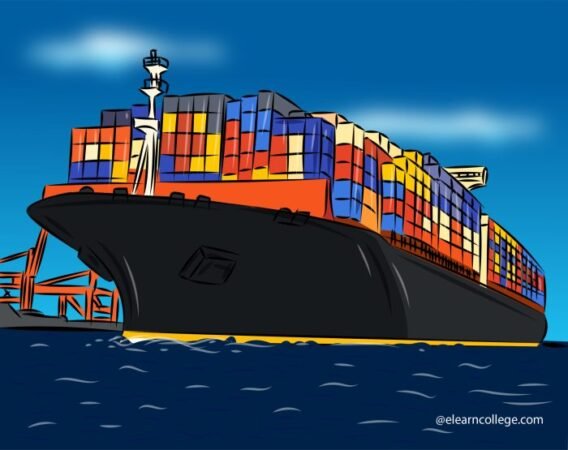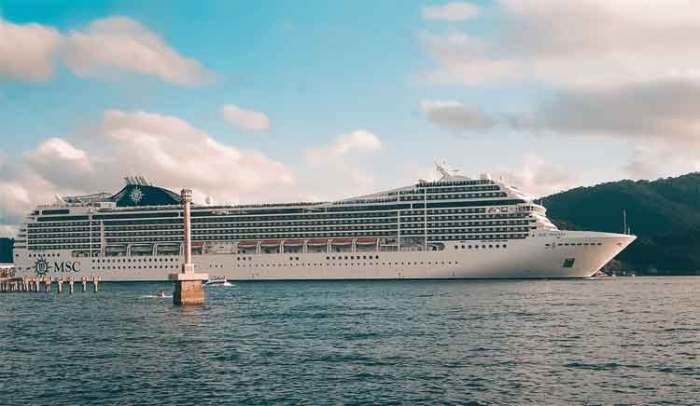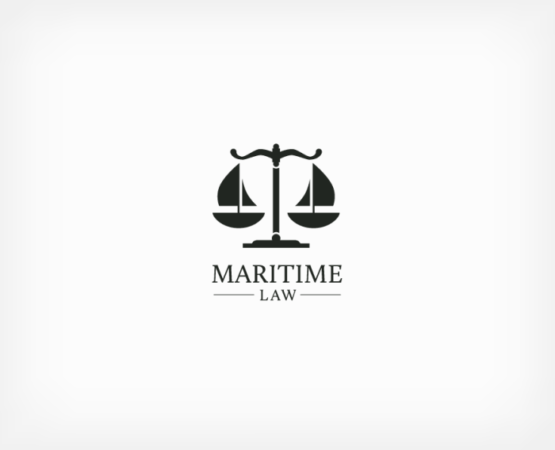
- Overview of Maritime Law Master’s Programs in the UK
- Career Paths After a Maritime Law Master’s in the UK
- Key Areas of Study within UK Maritime Law Master’s Programs
- Skills Developed Through a UK Maritime Law Master’s Program
- Further Education and Specialization Opportunities
- The Role of Technology in Maritime Law
- Conclusive Thoughts
- FAQ
The UK boasts a rich maritime history, shaping its robust legal framework governing the seas. Pursuing a Maritime Law Master’s degree in the UK offers a unique opportunity to delve into this specialized field, equipping graduates with the knowledge and skills to navigate the complexities of international maritime law and the burgeoning technological advancements transforming the industry.
From understanding international conventions to mastering legal research and drafting, a UK Maritime Law Master’s program provides a rigorous academic foundation combined with practical application. Graduates are well-positioned for diverse career paths within the maritime sector, including roles in shipping companies, law firms specializing in maritime law, and government regulatory bodies. This guide explores the curriculum, career prospects, and future implications of this specialized Master’s degree.
Overview of Maritime Law Master’s Programs in the UK
Maritime law in the UK boasts a rich history and a significant global impact. Master’s programs in this field provide advanced training for aspiring legal professionals and industry experts, equipping them with the specialized knowledge needed to navigate the complex legal landscape of the maritime industry. These programs offer a blend of theoretical understanding and practical application, often incorporating case studies and simulations to enhance learning.
Typical Curriculum of a Maritime Law Master’s Program
A typical Maritime Law Master’s curriculum in the UK covers a range of core subjects, including international maritime conventions (like the UNCLOS and the Hamburg Rules), shipping contracts (charterparties, bills of lading), marine insurance, collision and salvage law, maritime jurisdiction and dispute resolution (arbitration, litigation), and environmental regulations impacting shipping. Many programs also incorporate modules on specific areas like admiralty practice, port state control, and the legal aspects of offshore energy and renewable resources. The balance between theoretical lectures and practical exercises, such as mooting and legal drafting, varies between institutions.
Specializations Offered by UK Universities
While the core curriculum is relatively consistent, UK universities often offer specializations within their Maritime Law Master’s programs. For instance, some institutions might focus on international shipping law, emphasizing the global regulatory framework and international trade aspects. Others might concentrate on the legal challenges posed by the offshore oil and gas industry or the emerging field of maritime renewable energy. Some programs may incorporate a strong practical element through partnerships with law firms or maritime businesses, providing students with internship opportunities or direct exposure to real-world cases. The specific specializations available depend on the university’s faculty expertise and research focus. This variability allows prospective students to tailor their studies to their specific career goals.
Admission Requirements for Maritime Law Master’s Programs
Admission requirements for UK Maritime Law Master’s programs typically include a good undergraduate degree in law (LLB) or a related field. A strong academic record is essential, usually demonstrated by a minimum GPA or equivalent. Some programs may also require prior experience in the maritime industry or a relevant legal field, demonstrating practical familiarity with the subject matter. Proficiency in English is usually a prerequisite, often assessed through standardized tests like IELTS or TOEFL. A strong personal statement outlining the applicant’s motivation and career aspirations is also crucial for admission. Some universities might also consider work experience or professional qualifications relevant to the maritime sector as part of their holistic assessment.
Tuition Fees and Program Duration
The following table provides a comparison of tuition fees and program duration for several UK universities (Note: Tuition fees are subject to change and may vary depending on student status and other factors. This data is for illustrative purposes and should be verified with the respective universities.):
| University | Program Duration | Tuition Fees (Approximate) | Specialization Focus |
|---|---|---|---|
| University of Southampton | 1 year full-time | £25,000 – £30,000 | International Maritime Law |
| University of Greenwich | 1 year full-time | £20,000 – £25,000 | Maritime Business and Law |
| University of Plymouth | 1 year full-time | £22,000 – £27,000 | Maritime Law and Shipping |
| Cardiff University (Example – May not offer specific Maritime Law Masters) | 1 year full-time (Illustrative) | £24,000 – £29,000 (Illustrative) | International Commercial Law (with potential Maritime electives) |
Career Paths After a Maritime Law Master’s in the UK
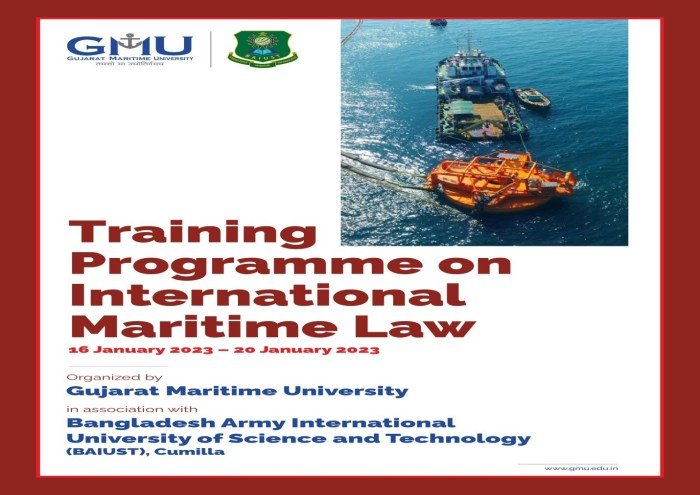
A Master’s degree in Maritime Law from a UK university opens doors to a diverse range of exciting and lucrative career paths within the global maritime industry and beyond. Graduates are highly sought after for their specialized knowledge and skills, making them competitive candidates in a dynamic and ever-evolving sector.
Graduates with a Maritime Law Master’s degree find employment across various sectors. Their expertise is valuable in addressing the complex legal and regulatory frameworks governing international trade, shipping operations, and marine insurance.
Industries Employing Maritime Law Graduates
Maritime law graduates are not limited to working solely within legal firms. Their skills are highly transferable and applicable to a wide range of organizations. This includes, but is not limited to, shipping companies, insurance providers, port authorities, and government regulatory bodies. Many graduates also find fulfilling careers in international organizations dedicated to maritime affairs. For instance, a graduate might work for a major shipping line managing contracts and disputes, or for a P&I club handling insurance claims related to maritime incidents. Alternatively, they could be employed by a port authority, ensuring compliance with environmental regulations and safety standards. The breadth of opportunity allows graduates to tailor their career to their specific interests and skill sets.
Salary Expectations for Maritime Law Graduates in the UK
Salary expectations for Maritime Law graduates in the UK vary depending on factors such as experience, employer, and specific role. However, starting salaries are generally competitive and reflect the specialized nature of the qualification. Entry-level positions may offer salaries in the range of £35,000-£45,000 per annum, with potential for significant increases as experience grows. Experienced maritime lawyers in senior positions can earn considerably more, reaching six-figure salaries. For example, a solicitor specializing in maritime disputes at a large international law firm could expect a significantly higher salary than a compliance officer at a smaller shipping company. These figures are estimates based on industry reports and job postings, and individual circumstances will naturally influence actual earnings.
Career Advancement Within the Maritime Industry
A Maritime Law Master’s degree provides a strong foundation for career advancement within the maritime industry. Graduates can progress to more senior roles within their chosen organizations, taking on greater responsibility and leadership positions. For example, a junior lawyer might progress to become a senior associate, then a partner at a law firm. Similarly, a compliance officer at a shipping company could move into a management position overseeing legal and regulatory compliance across the entire organization. Continued professional development, such as pursuing further qualifications or specializing in a particular area of maritime law, can further enhance career prospects. The opportunities for specialization are extensive, allowing graduates to develop expertise in areas such as ship finance, marine insurance, or international shipping regulations. This focused expertise further enhances earning potential and career progression.
Key Areas of Study within UK Maritime Law Master’s Programs
UK Maritime Law Master’s programs provide a comprehensive education in the complex legal framework governing maritime activities. Students gain a deep understanding of both domestic and international law, equipping them for diverse careers within the maritime industry. The curriculum blends theoretical knowledge with practical application, often incorporating case studies and simulations to enhance learning.
Core Legal Subjects in UK Maritime Law Master’s Programs
A typical UK Maritime Law Master’s program will cover a range of core legal subjects. These subjects build upon foundational legal principles and delve into specialized areas of maritime law. The specific modules may vary slightly between institutions, but common themes consistently emerge. These core subjects provide a robust foundation for understanding the complexities of the maritime legal landscape.
- Shipping Contracts: This module explores the legal aspects of various shipping contracts, including charterparties (time charters, voyage charters, bareboat charters), bills of lading, and other related agreements. Students will learn about contract formation, interpretation, and dispute resolution in the context of shipping transactions.
- Maritime Insurance: This module examines the different types of maritime insurance, such as hull and machinery insurance, cargo insurance, and protection and indemnity (P&I) insurance. Students will analyze insurance policies, claims procedures, and the role of insurers and brokers in managing maritime risks.
- Admiralty Jurisdiction and Procedure: This module focuses on the unique jurisdiction of admiralty courts and the specific procedures involved in maritime litigation. Students learn about arrest of vessels, maritime liens, and the enforcement of maritime judgments.
- International Maritime Conventions: A significant portion of the curriculum is dedicated to the study of key international maritime conventions, such as the UN Convention on the Law of the Sea (UNCLOS), the International Convention for the Safety of Life at Sea (SOLAS), and the International Maritime Organisation (IMO) conventions related to pollution prevention and liability.
- Maritime Torts and Crimes: This module explores liability for maritime accidents, collisions, and other torts, as well as criminal offences committed at sea, such as piracy and smuggling.
- Seafarers’ Rights and Labour Law: This module addresses the legal rights and protections afforded to seafarers under international and national law, including issues related to wages, working conditions, and social security.
The Significance of International Maritime Conventions in the Curriculum
International maritime conventions play a crucial role in shaping the legal landscape of the maritime industry. The curriculum emphasizes their importance due to the inherently international nature of shipping and maritime trade. Students are expected to understand the provisions of key conventions, their application in practice, and the mechanisms for enforcement. A strong grasp of these conventions is essential for navigating the complexities of international maritime law. For example, understanding UNCLOS is fundamental for resolving disputes over maritime boundaries and jurisdiction, while SOLAS is crucial for ensuring the safety of life at sea.
Comparison of Maritime Insurance and Shipping Contracts in Different Programs
While the core subjects remain consistent, the emphasis placed on specific areas, such as maritime insurance and shipping contracts, might vary across different UK Maritime Law Master’s programs. Some programs may offer specialized modules focusing on particular aspects of insurance, such as marine cargo insurance or P&I clubs, while others may delve deeper into specific types of shipping contracts, like charterparties. This variation reflects the diverse career paths that graduates might pursue. For instance, a program with a stronger emphasis on insurance might be more suitable for students aiming for careers in the insurance sector, whereas a program focusing on shipping contracts might be more appealing to those interested in working for shipping companies or law firms specializing in shipping transactions.
Sample Syllabus for a Maritime Law Master’s Program
This sample syllabus illustrates a potential structure for a Maritime Law Master’s program, highlighting key modules and their learning objectives. The specific modules and their content will vary depending on the institution.
| Module | Learning Objectives |
|---|---|
| Introduction to Maritime Law | To provide a foundational understanding of the key principles and concepts of maritime law. |
| Shipping Contracts | To analyze the legal aspects of various shipping contracts and their practical application. |
| Maritime Insurance | To understand the different types of maritime insurance, claims procedures, and risk management. |
| Admiralty Jurisdiction and Procedure | To learn about the unique jurisdiction of admiralty courts and the procedures involved in maritime litigation. |
| International Maritime Conventions | To understand the provisions and application of key international maritime conventions. |
| Maritime Torts and Crimes | To analyze liability for maritime accidents and offences committed at sea. |
| Seafarers’ Rights and Labour Law | To understand the legal rights and protections afforded to seafarers. |
| Dispute Resolution in Maritime Law | To explore various methods of dispute resolution in maritime law, including arbitration and litigation. |
| Dissertation | To conduct independent research on a chosen topic in maritime law. |
Skills Developed Through a UK Maritime Law Master’s Program
A UK Maritime Law Master’s program equips graduates with a comprehensive skillset extending beyond theoretical knowledge. The practical application of legal principles, honed through rigorous coursework and potentially practical placements, is central to the learning experience. This ensures graduates are well-prepared for the demands of a dynamic and specialized legal field.
A successful completion of a Maritime Law Master’s program results in the acquisition of a range of valuable skills applicable across various maritime legal contexts. These skills are developed through a combination of lectures, seminars, workshops, and often, practical assignments such as simulated legal cases and research projects.
Legal Research and Writing Skills
Legal research and writing are fundamental to any legal profession, and the maritime law field is no exception. Students develop these skills through dedicated modules focusing on legal research methodologies, the use of legal databases (like Westlaw or LexisNexis), and the crafting of persuasive legal arguments. Assignments often involve researching specific maritime legal issues, analyzing case law and legislation, and preparing legal memoranda or opinions. This practical application reinforces theoretical understanding and builds confidence in applying legal principles to real-world scenarios.
Analytical and Problem-Solving Abilities
Maritime law often involves complex and multifaceted problems requiring careful analysis and strategic problem-solving. The program cultivates these abilities through case studies, problem-solving exercises, and simulations of real-world maritime disputes. Students learn to dissect complex legal issues, identify key factors, evaluate evidence, and develop effective solutions. For example, analyzing a collision case requires understanding not only the relevant collision regulations but also considering factors like vessel speed, weather conditions, and crew actions. This analytical approach is reinforced throughout the curriculum.
Critical Thinking and Legal Argumentation Skills
Critical thinking and the ability to construct robust legal arguments are paramount in maritime law. The program encourages these skills through participation in debates, mooting competitions, and the preparation of legal submissions. Students learn to evaluate different perspectives, identify weaknesses in arguments, and build compelling and logically sound legal cases. This process strengthens their ability to think critically, analyze information objectively, and articulate their legal positions effectively. The focus is on developing well-structured arguments supported by relevant legal authority and evidence.
List of Skills Developed and Their Development Methods
The following list details the key skills developed and the methods used to cultivate them within the program:
- Legal Research: Developed through dedicated modules on research methodologies, access to legal databases, and practical assignments requiring in-depth legal research.
- Legal Writing: Enhanced through drafting legal memoranda, opinions, and submissions, receiving feedback on clarity, structure, and persuasive argumentation.
- Analytical Skills: Cultivated through case studies, problem-solving exercises, and simulations of maritime disputes, requiring students to dissect complex situations and identify key issues.
- Problem-Solving Skills: Developed through applying legal principles to practical scenarios and formulating solutions to complex maritime legal problems.
- Critical Thinking: Improved through participation in debates, mooting competitions, and analysis of case law, fostering the ability to evaluate different perspectives and construct well-reasoned arguments.
- Legal Argumentation: Strengthened through preparing legal submissions and participating in moot court exercises, emphasizing the construction of logically sound and persuasive arguments.
- Negotiation and Dispute Resolution: Enhanced through role-playing exercises and simulations, developing skills in alternative dispute resolution methods like mediation and arbitration.
- International Maritime Law Knowledge: Developed through specialized modules covering international conventions, treaties, and legal instruments governing maritime activities.
Further Education and Specialization Opportunities
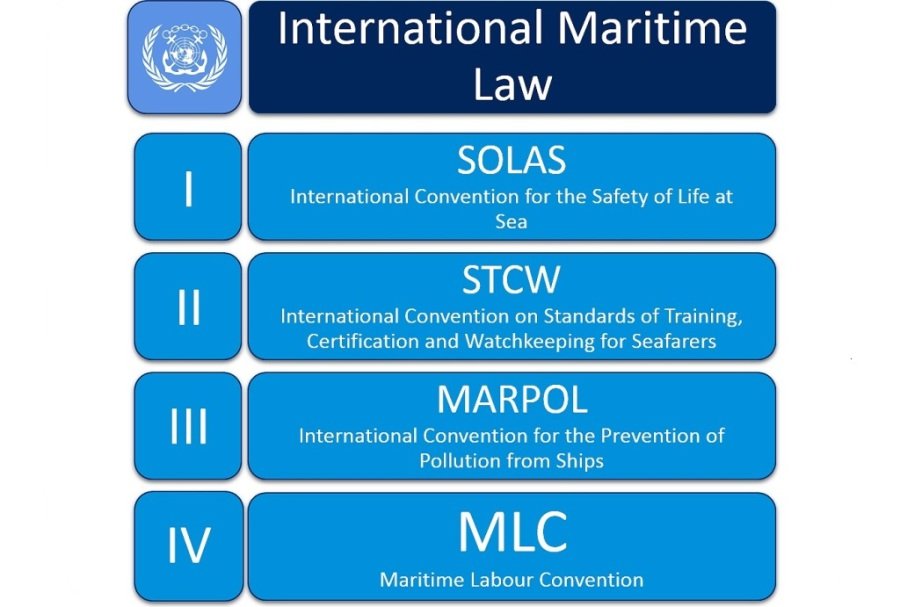
A Master’s degree in Maritime Law from a UK university provides a strong foundation for a variety of career paths, but it also serves as an excellent springboard for further education and specialization. Graduates often find themselves equipped to pursue doctoral studies or to delve deeper into specific niches within the field. The opportunities available are diverse and depend largely on individual interests and career aspirations.
A Master’s in Maritime Law can be a valuable stepping stone towards a more specialized legal career. The advanced knowledge and skills gained during the master’s program provide a solid base for further study and professional development. This advanced training enables graduates to tackle increasingly complex legal challenges and contribute meaningfully to the maritime industry.
PhD Study and Research Areas
Pursuing a PhD after a Master’s in Maritime Law allows for in-depth exploration of specific legal issues within the maritime sector. Research opportunities are plentiful, spanning diverse areas such as international maritime law, maritime environmental law, shipping finance, and the legal aspects of offshore energy. For instance, a doctoral candidate might investigate the effectiveness of international conventions in preventing marine pollution, analyze the legal frameworks governing autonomous vessels, or explore the legal challenges posed by deep-sea mining. The choice of research topic is largely determined by the student’s academic interests and the expertise of the supervising professors at the chosen university.
Relevant Professional Certifications and Qualifications
Several professional certifications can complement a Master’s in Maritime Law and enhance career prospects. These certifications often demonstrate specialized expertise and can be beneficial in securing employment or advancing within a maritime law firm or organization. Examples include qualifications offered by professional bodies such as the Chartered Institute of Arbitrators (CIArb) for arbitration skills, or specialized certifications in areas like marine insurance or maritime security. These additional qualifications can broaden skillsets and demonstrate a commitment to professional excellence.
Specialized Legal Careers
A Master’s in Maritime Law acts as a robust foundation for a range of specialized legal careers. Graduates are well-prepared to work in maritime law firms specializing in areas like shipping litigation, cargo claims, or marine insurance. They are also well-suited for roles within governmental bodies, such as the Maritime and Coastguard Agency (MCA) or international organizations like the International Maritime Organization (IMO), where expertise in maritime law is crucial. Furthermore, positions within the shipping industry itself, advising on legal compliance and risk management, are readily available to graduates possessing a Master’s degree. The advanced knowledge gained during the Master’s program enables graduates to handle complex legal issues and contribute effectively to the maritime sector’s continued growth and development.
The Role of Technology in Maritime Law

The rapid advancement of technology is profoundly reshaping the maritime industry, creating both exciting opportunities and significant legal challenges. Digitalization is transforming shipping operations, from vessel management and cargo tracking to port logistics and crew communication. This technological revolution necessitates a corresponding evolution in maritime law to address the new risks and complexities it presents. The interaction between technology and maritime law is dynamic and increasingly crucial for the safety, efficiency, and sustainability of the global maritime sector.
Digitalization in Shipping and its Legal Implications
Digitalization is streamlining various aspects of shipping, improving efficiency and reducing costs. The use of electronic bills of lading (eBLs), for instance, has significantly reduced paperwork and sped up cargo transactions. However, this also introduces new legal questions surrounding data security, authenticity verification, and electronic signature validity. The increased reliance on data analytics for risk assessment and predictive maintenance raises concerns about data privacy and the potential for algorithmic bias. Moreover, the interconnected nature of digital systems creates vulnerabilities to cyberattacks, necessitating robust cybersecurity measures and updated legal frameworks to address cyber-related liabilities.
Emerging Legal Challenges Related to Autonomous Vessels and AI in Shipping
The development of autonomous vessels and the increasing integration of artificial intelligence (AI) in shipping present a range of novel legal challenges. Questions surrounding liability in the event of accidents involving autonomous vessels are particularly complex. Determining responsibility when a malfunctioning AI system causes a collision or environmental damage requires a re-evaluation of existing legal frameworks. Furthermore, the use of AI in decision-making processes raises ethical considerations, including algorithmic transparency and accountability. International cooperation is crucial in developing a consistent legal framework for autonomous shipping, considering diverse national regulations and legal traditions.
Visual Representation: The Interaction Between Technology and Maritime Law
The visual representation would be a Venn diagram. One circle represents “Technology in Maritime,” encompassing elements such as autonomous vessels, AI-powered navigation systems, blockchain technology for supply chain management, IoT sensors for real-time monitoring, and eBLs. The second circle represents “Maritime Law,” including areas such as collision regulations, salvage law, maritime insurance, environmental protection laws, and liability frameworks. The overlapping area, representing the intersection of both circles, highlights the key areas where technology and maritime law interact. This area would include sub-sections illustrating specific legal challenges posed by technology, such as liability for autonomous vessel accidents, data privacy regulations in shipping, and cybersecurity in maritime operations. The diagram would visually demonstrate how technological advancements create new legal issues that require adaptation and innovation within the existing maritime legal framework. Arrows connecting elements within each circle and the intersection would further illustrate the dynamic relationship between technology and maritime law, showing how technological changes influence legal developments and vice versa. For example, an arrow could connect “Autonomous Vessels” to “Liability Frameworks” to show the direct impact of autonomous vessels on liability considerations.
Conclusive Thoughts
A Maritime Law Master’s degree from a UK university is a significant investment in a specialized and rewarding career. The program equips graduates not only with a deep understanding of maritime law but also with the crucial skills necessary to thrive in a dynamic and ever-evolving industry. As technology continues to reshape the maritime landscape, graduates will be at the forefront of addressing emerging legal challenges, ensuring the continued safe and efficient operation of global shipping.
FAQ
What is the average salary for a Maritime Law graduate in the UK?
Salaries vary greatly depending on experience and employer but generally range from £40,000 to £70,000 per year for entry-level positions.
Are there scholarships available for Maritime Law Master’s programs in the UK?
Yes, many universities offer scholarships and financial aid opportunities. It’s advisable to check with individual universities for specific details.
What are the typical entry requirements beyond a bachelor’s degree?
Most programs require a relevant undergraduate degree (e.g., Law, Business) and a strong academic record. Some may also require work experience in a related field.
What are the job prospects after graduation outside the UK?
A UK Maritime Law Master’s degree is internationally recognized, enhancing career prospects globally, particularly in countries with significant maritime activity.
